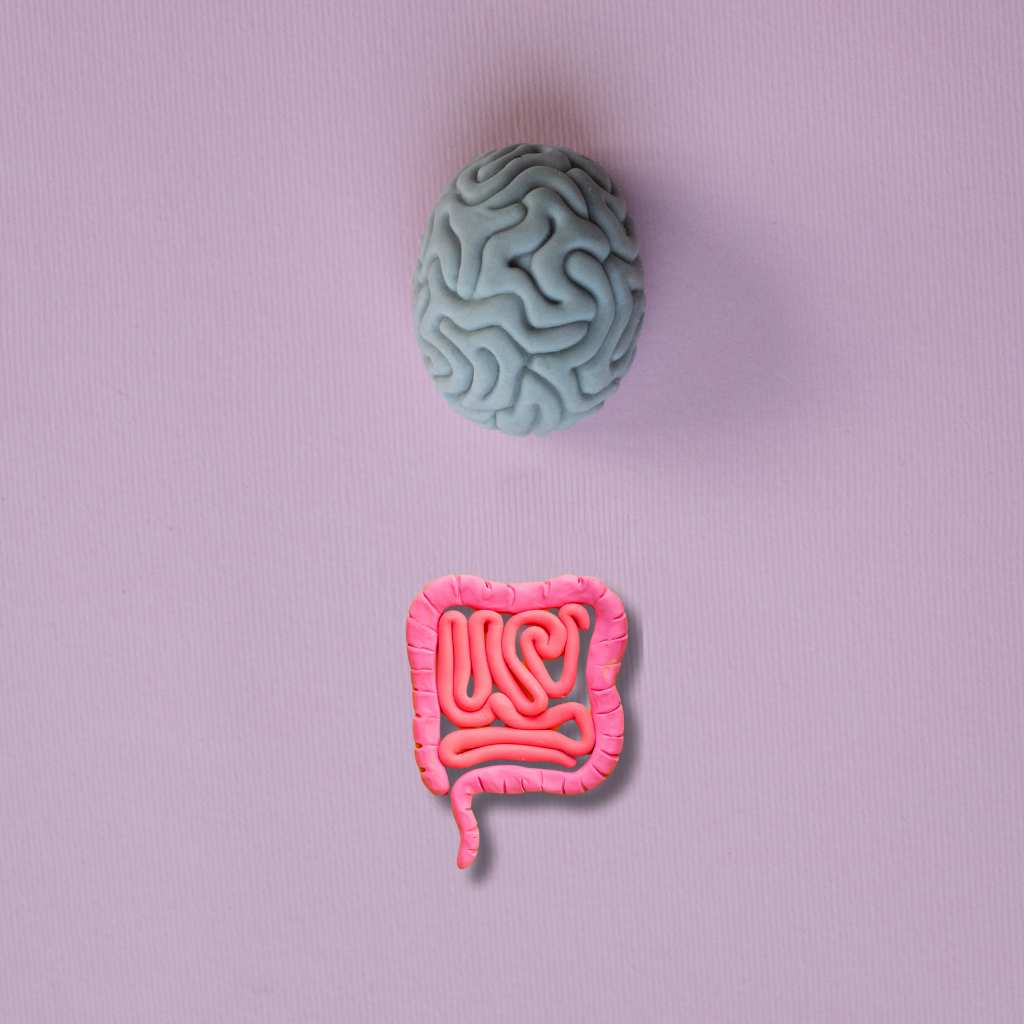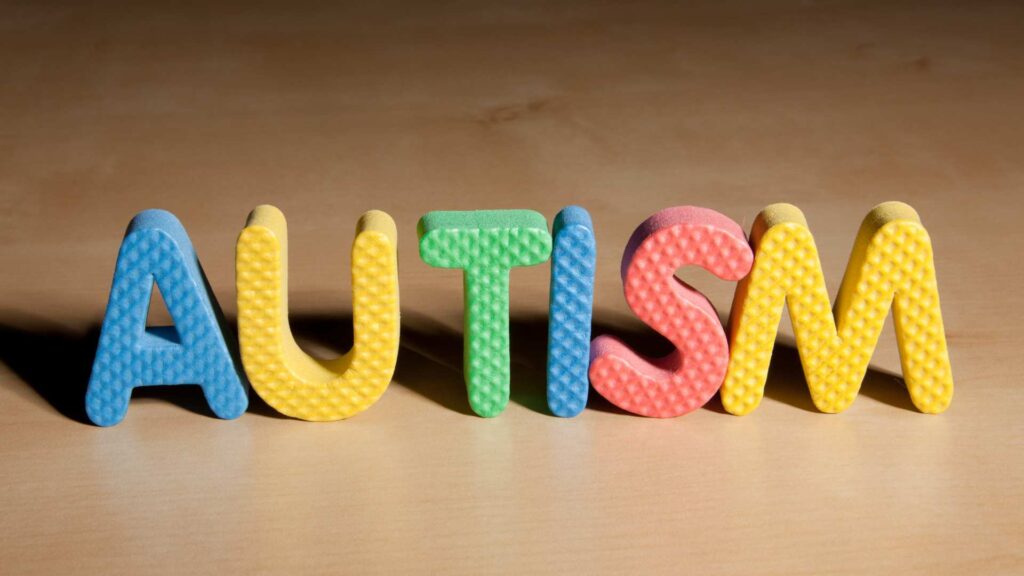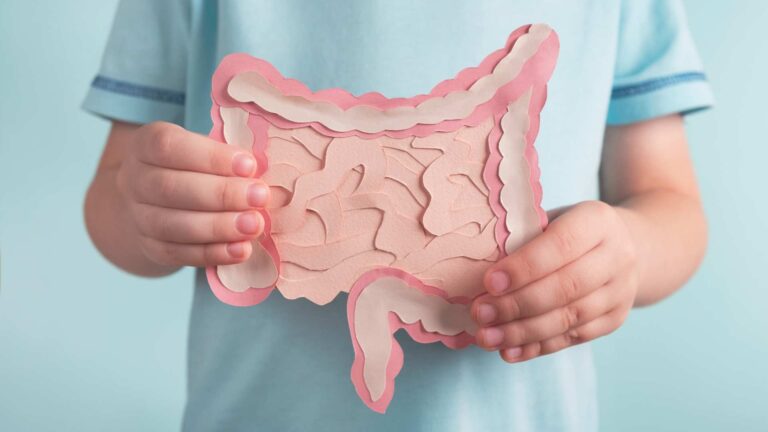Table of Contents
Is autism linked to the gut?
Over the last decade, research on the connection between the brain and the gut has increased, a relationship now known as the gut-brain axis. Among various conditions under investigation, autism spectrum disorder (ASD) has drawn significant attention due to the high rate of gastrointestinal issues observed in children on the spectrum. The gut-brain connection in autism has become a point of research, offering insights that, while not curative, may improve the quality of life for families navigating the complexities of ASD.
As families continue seeking effective, respectful ways to support neurodivergent children, it’s crucial to understand what science says about the gut-brain connection in autism, what the microbiome does, and how it interacts with the brain.
While microbiomes do not cause autism, they can influence physical health and behavior. In this blog by ABA Centers of Florida, let’s explore this connection and how families can foster a healthier gut while supporting their child’s developmental needs.
What Is the Gut-Brain Axis?
The gut-brain axis refers to the bidirectional communication between the gastrointestinal system and the brain. This relationship is facilitated through neural, hormonal, and immune pathways—and crucially, through the gut microbiota. The microbiota consists of trillions of microorganisms that live in our digestive tract, playing a key role in digestion, immunity, and even neurotransmitter production.
According to the National Library of Medicine, the gut-brain connection in autism is partially mediated by how gut microbes influence brain chemistry.

These microbes produce substances like serotonin and gamma-aminobutyric acid (GABA), which act as neurotransmitters and are vital for mood regulation, cognition, and behavior. The vagus nerve serves as a communication superhighway, sending signals between the gut and the brain in both directions.
For instance:
Serotonin: Approximately 90% of the body’s serotonin is produced in the gastrointestinal tract. Journal of Clinical Medicine indicates that gastrointestinal disorders and alterations in gut microbiota can affect serotonin signaling in the intestines and the brain. Moreover, the study suggests that autism may be linked to two abnormalities in the brain’s serotonin system.
The first one began when scientists found higher-than-normal levels of serotonin in the blood of about one-third of autistic children, and even in some of their close relatives. Showing that serotonin synthesis capability in young autistic children is lower than in non-autistic children, especially under the age of five, possibly affecting how brain circuits develop. And the second one suggests that some children with autism also show unusual serotonin activity in specific brain areas like the thalamus and frontal cortex.
GABA (γ-aminobutyric acid): This inhibitory neurotransmitter regulates nervous system activity. Certain gut bacteria can synthesize GABA, potentially influencing anxiety and stress responses through the gut-brain connection in autism.
Dopamine: While primarily associated with reward pathways, specific gut bacteria can produce dopamine or its precursors, potentially affecting neurotransmitter availability throughout the body.
Gut Microbiome and Autism

Research by The Psychiatric Clinics of North America suggests that children with autism often experience gastrointestinal issues such as constipation, diarrhea, and bloating. While these symptoms are not exclusive to autism, they are disproportionately common in the autistic population, varying from 9% to 91%.
One of the leading theories is that the microbiome and autism share a connection through immune system regulation. A study by Immunity found that maternal gut bacteria can alter immune responses in offspring, increasing susceptibility to both intestinal inflammation and autism-like behaviors. These changes occur at the chromatin level, affecting how immune cells in the gut behave after birth.
This finding suggests a plausible biological pathway where inflammation and gut imbalance may contribute to behavioral changes in children predisposed to autism. Yet, it’s essential to clarify that these are not causes of autism but rather co-occurring factors that may influence symptom expression and severity.
Moreover, the study identifies differences in the gut microbiome composition of individuals with autism compared to neurotypical peers. These differences include:
- Altered diversity of bacterial species: A healthy gut microbiome typically contains a wide range of bacterial species that work together to maintain balance. In many individuals with autism, fewer types of beneficial bacteria are present. Lower diversity can weaken the gut’s resilience, make it more vulnerable to inflammation, and reduce the production of key metabolites involved in brain signaling.
- Different proportions of certain bacterial families: Many individuals with autism may have an overgrowth of potentially harmful bacteria and a decrease in helpful strains like Bifidobacterium or Lactobacillus. This imbalance, or dysbiosis, can disrupt digestion, increase intestinal permeability (sometimes referred to as “leaky gut”), and contribute to systemic inflammation that may influence brain function or behavior.
- Unique metabolic signatures from bacterial byproducts: Gut bacteria produce a variety of substances as they break down food, including short-chain fatty acids (SCFAs), neurotransmitter precursors, and other bioactive compounds. In children with autism, some of these byproducts are altered levels. For example, excessive levels of certain SCFAs might influence neurological signaling, while deficiencies in others could impact mood regulation or immune function.
Can Probiotics and Gut Health Strategies Help with ASD?
While the connection between the gut and brain continues to be studied, emerging evidence has led researchers and healthcare providers to consider not only how the brain may influence the gut but also how improving gut health may, in turn, support overall well-being in children with autism.
No probiotic or supplement “treats” autism, but fostering a healthy microbiome can alleviate many gastrointestinal symptoms. Frontiers in Microbiology suggests that probiotic therapy, which aims to restore balance to the gut flora, may help reduce inflammation, improve digestion, and potentially support more regulated behavior.
Prebiotics (foods that feed beneficial bacteria) and probiotics (live bacteria) are gaining attention for their potential to support gut-brain health. In addition, dietary changes that increase fiber, hydration, and nutrient-rich foods can support a more diverse microbiota.
However, parents and caregivers should use these strategies to support well-being, not as an autism treatment.
How ABA Therapy Supports Healthy Habits
One barrier to improving gut health in children with autism is restrictive eating patterns. Many children with ASD exhibit food aversions, sensitivities to texture, or adherence to limited diets, and overall picky eating. These behaviors, while valid expressions of sensory needs, can limit exposure to fiber-rich vegetables, fermented foods, and whole grains that nourish the microbiome.
While ABA is often associated with teaching communication or daily living skills, it also addresses feeding challenges. ABA therapists can work with families to gradually expand a child’s food repertoire, introducing new textures or flavors at a pace that respects the child’s comfort and autonomy.
Through reinforcement strategies and behavioral support, children can learn to enjoy a wider variety of foods, promoting better nutrition and supporting a more balanced microbiota.
Comprehensive Support for Neurodiverse Families in ABA Centers of Florida
While understanding the gut-brain connection in autism provides valuable insights, it is essential to recognize that autism requires multidisciplinary support addressing all aspects of development and well-being.
At ABA Centers of Florida, we embrace a comprehensive approach that considers the whole individual, not merely addressing behaviors but understanding their underlying causes and developing meaningful skills. Our methodology acknowledges that individuals with autism deserve respect for their unique perspectives while receiving support for challenges that may impact their comfort and engagement with the world.
Whether you’re looking for help with communication, behavior, or healthy eating routines, we’re here to guide you without compromising your child’s authenticity or unique strengths. Call us at (772) 773-1975 or contact us online to learn more about our services and how we can support your family on this journey of growth and development.









